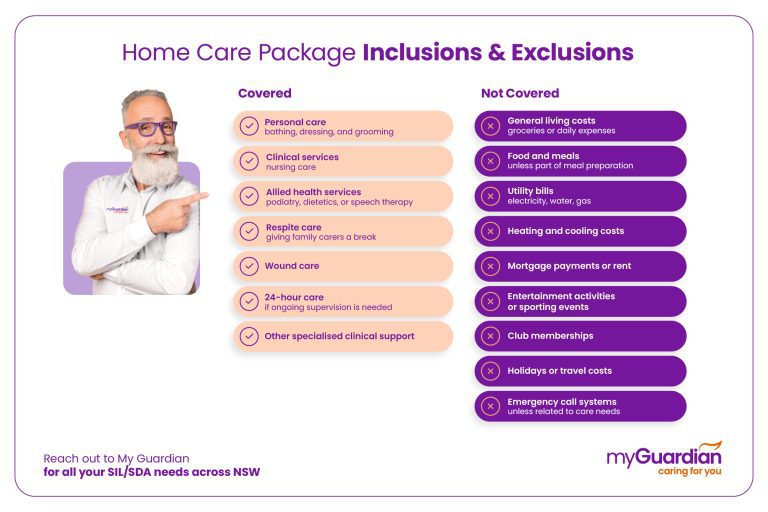What you should know before starting services with home care providers under NDIS
What you should know before starting services with home care providers under NDIS
Blog Article
Everything About Home Treatment Services for People With Disabilities: NDIS Registered Support
Home care solutions under the NDIS play a critical role in sustaining individuals with disabilities. These solutions are developed to enhance day-to-day living through customized support, varying from individual like movement assistance. Comprehending how to browse these options can be complicated. This overview checks out the numerous elements of NDIS home treatment, from available solutions to the selection of providers, highlighting important considerations for those seeking support. The journey toward empowered treatment starts right here.
Understanding the NDIS and Its Objective
The National Impairment Insurance System (NDIS) acts as a transformative framework designed to provide assistance and solutions for people with handicaps. Developed to boost the high quality of life and warranty equitable accessibility to crucial sources, the NDIS empowers participants by offering personalized plans customized to their unique requirements. It aims to promote self-reliance, making it possible for people to seek their individual objectives and aspirations.Through an organized technique, the NDIS allots financing for numerous supports, consisting of education, work support, and area involvement. This all-inclusive scheme not only concentrates on immediate care yet additionally stresses long-term developmental end results. By promoting selection and control, the NDIS urges individuals to select their recommended provider, guaranteeing that treatment lines up with their values and preferences. Eventually, the NDIS represents a substantial commitment to enhancing the lives of people with handicaps, fostering inclusivity, and developing a much more helpful society.
Kinds Of Home Care Provider Available
Numerous types of home treatment solutions deal with individuals with disabilities, primarily concentrating on personal treatment help and respite treatment options. Individual treatment help offers essential support with everyday tasks, while break treatment provides momentary alleviation for primary caretakers. Comprehending these solutions is essential for guaranteeing the well-being of both people with specials needs and their households.
Personal Care Assistance
While navigating every day life can offer difficulties for people with handicaps, personal treatment assistance supplies crucial support customized to their one-of-a-kind demands. This type of home care solution incorporates a variety of tasks created to advertise freedom and boost lifestyle. Personal care assistants aid with day-to-day tasks such as showering, clothing, brushing, and toileting, making sure people maintain personal health and convenience. They might likewise assist with meal prep work, medication monitoring, and flexibility assistance. By offering personalized treatment, these professionals empower individuals to engage more fully in their social tasks and everyday regimens. Overall, personal care help plays a significant function in cultivating self-respect and autonomy for those with impairments, enabling them to grow in their home environment.

Break Care Options
Break care works as an essential source for families and caretakers of individuals with disabilities, supplying short-term remedy for the demands of day-to-day caregiving. This kind of service can take different forms, consisting of in-home respite treatment, where skilled experts go to the home to assist with treatment jobs. Additionally, family members may select facility-based reprieve care, where individuals obtain care in a specialized environment, permitting caregivers to pause. Furthermore, some organizations offer emergency reprieve solutions for unpredicted situations. These alternatives not only aid ease caregiver stress however also promote the well-being of individuals with impairments by supplying them brand-new experiences and social communication. Generally, respite treatment plays a crucial role in supporting both caregivers and those they care for.

How to Gain Access To NDIS Home Care Services
Accessing NDIS home treatment solutions involves understanding the eligibility requirements established forth by the National Impairment Insurance Policy System. People have to browse an organized application procedure to safeguard the necessary support customized to their needs. This section will clarify both the eligibility demands and the actions entailed in applying for services.
Qualification Requirements Described
To get approved for NDIS home treatment services, people need to satisfy details qualification criteria that assess their conditions and requirements. First, applicants must be matured in between 7 and 65 years and have a long-term and substantial impairment that impacts their ability to do daily activities. Additionally, they have to be an Australian resident, a permanent citizen, or hold a Protected Special Group Visa. The NDIS needs evidence of the special needs, generally via medical evaluations or records. Moreover, individuals need to demonstrate that they need support to take part in social and economic life. These standards guarantee that solutions are routed in the direction of those who genuinely require support, advertising independence and improved top quality of life imp source for people with handicaps.
Application Process Actions
Can I Pick My Very Own Support Workers Through NDIS?
The individual inquired whether they could choose their very own support workers under the NDIS framework. Generally, participants have the adaptability to choose assistance workers, fostering personalized treatment that straightens with their specific needs and choices.
What Occurs if My Requirements Adjustment After Obtaining Assistance?
If an individual's needs adjustment after getting assistance, they ought to communicate these changes to their company. Adjustments can be made to the care strategy, making sure that the support remains pertinent and reliable for their conditions.

Are There Limits on The Number Of Hours of Treatment I Can Obtain?
The specific asked about possible limits on the number of care hours obtained. Generally, such limits may exist based upon details policies or moneying arrangements, highlighting the importance of evaluating guidelines and agreements consistently.
Can I Utilize NDIS Financing for Home Modifications?
The question of making use of financing for home adjustments occurs frequently. Usually, people might use NDIS funding for necessary alterations to their homes, making certain accessibility and safety and security, section upon conference specific qualification criteria and standards.
How Do I Handle Problems Regarding My Home Care Providers?
To attend to issues regarding home care solutions, individuals must initially document their problems. They can connect straight with their solution provider, looking for resolution, or escalate the concern to relevant oversight bodies if required. Home treatment solutions under the NDIS play a critical duty in supporting people with specials needs. Various types of home treatment solutions cater to individuals with disabilities, largely concentrating on personal care assistance and reprieve treatment options. home care package providers. Individual treatment support offers crucial support with day-to-day tasks, while break treatment offers momentary relief for main caretakers. Families may opt for facility-based reprieve care, where people get treatment in a customized environment, permitting caretakers to take a break. How can households efficiently take care of the financial elements of home treatment solutions for people with specials needs?
Report this page